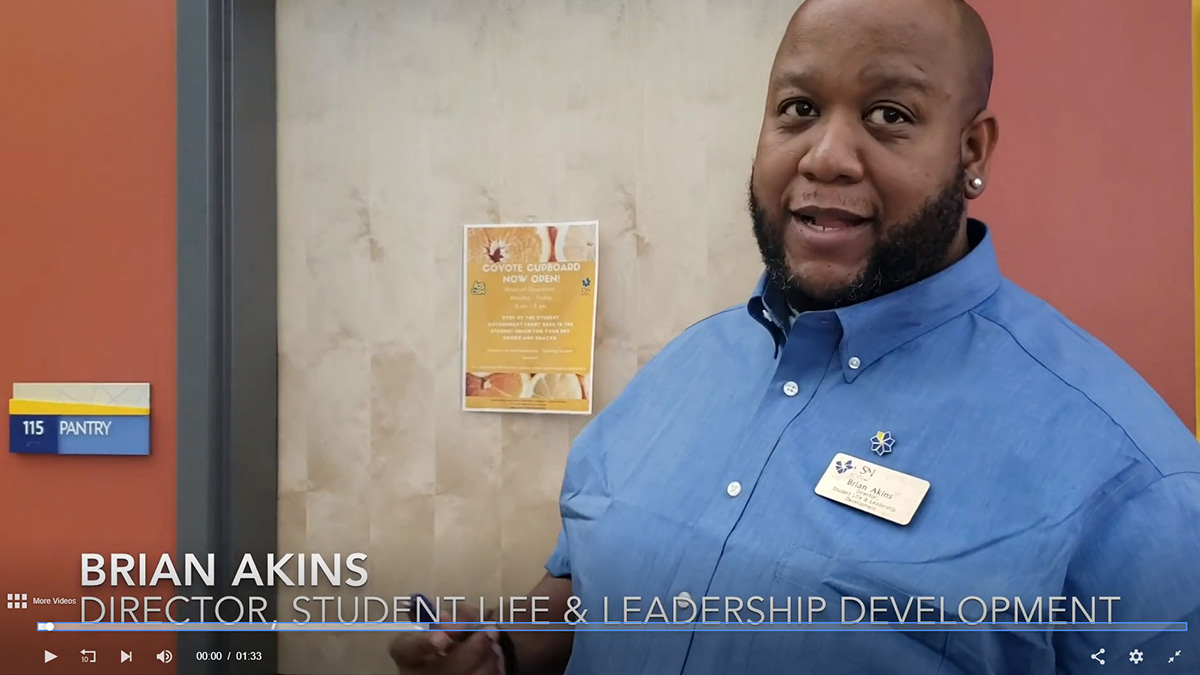About our College
A founding college of the University, we have a long tradition of excellence in teaching, research and engagement programs that benefit the health and economic vitality of Nevada. We offer programs in:
- agriculture, horticulture, rangeland & veterinary sciences
- biochemistry & molecular biology
- children, youth & families
- community & economic development
- health & nutrition
- natural resources & environmental science
College alumnus becomes veterinarian at Roosevelt Park Zoo
Logan Wood gives Minot, North Dakota a try.
Eloise Ogden, with Minot Daily News
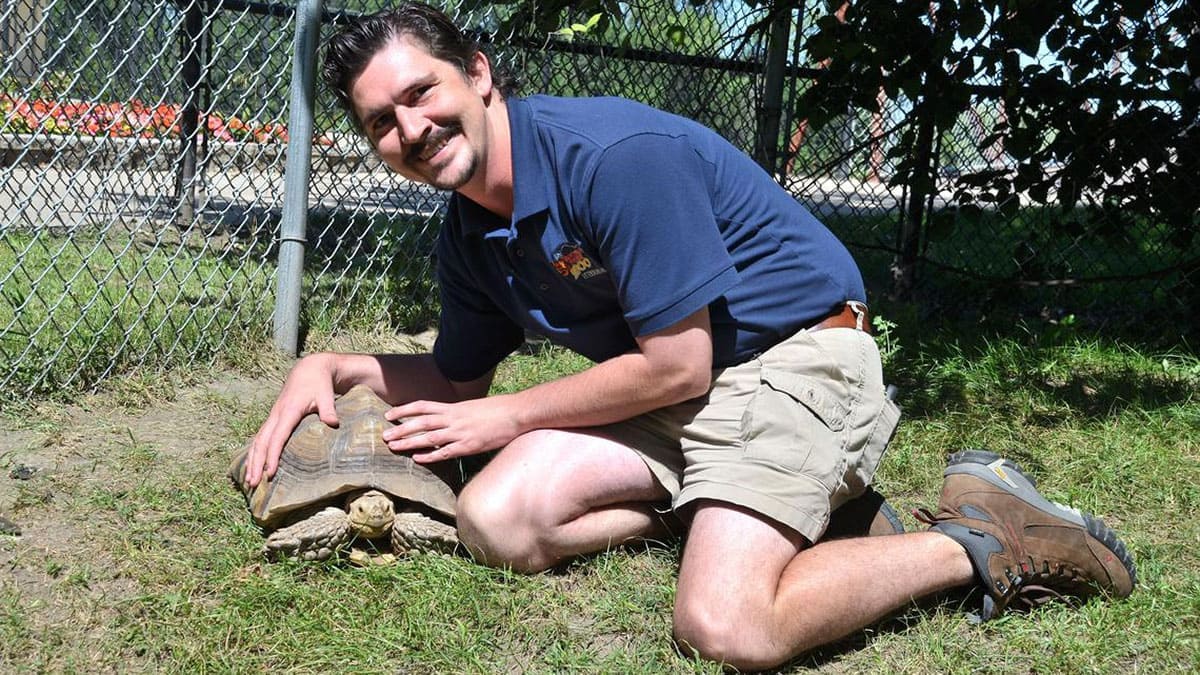 Logan Wood shows off Wilson, a tortoise found on a log at Lake Sakakawea that was brought to the zoo. Photo by Eloise Ogden, Minot Daily News.
Logan Wood shows off Wilson, a tortoise found on a log at Lake Sakakawea that was brought to the zoo. Photo by Eloise Ogden, Minot Daily News.
Logan Wood '12 (animal science) has been the veterinarian at Roosevelt Park Zoo in Minot since May 1.
Born and raised in Reno in the Lake Tahoe area in Nevada, he has been interested in science and animals since an early age.
"You name it, I had it as a pet," he said. Growing up, when he wanted a new pet, he said his mother, a teacher, would have him do a report on the specific animal.
"I would have to do a full book report on how to care for these animals, what it would cost, how much time it would take every day, what the diet looks like, what the care looks like. I'd have to do all of that before I could potentially get that animal," he said.
Because he lived on a farm, he said he did get the animals he wanted. "I had llamas, green iguanas, snakes, frogs. I had one frog, an African pixie frog, that was the size of a volleyball. I had dogs, cats and birds. I also had a big-mouthed bass that would jump out of the water and I could hand feed it. I had all these weird, different pets growing up," he laughed.
Wood graduated from the University of Nevada, Reno, then studied abroad in South Africa at the University of Pretoria for two years.
When the position at the Minot zoo opened...
"I jumped on it and said, 'Hey, I really want to try something new — might as well try North Dakota.'" - Logan Wood
New faculty member to teach and advise veterinary students
Coretta Patterson joins the College of Agriculture, Biotechnology & Natural Resources
Hannah Alfaro
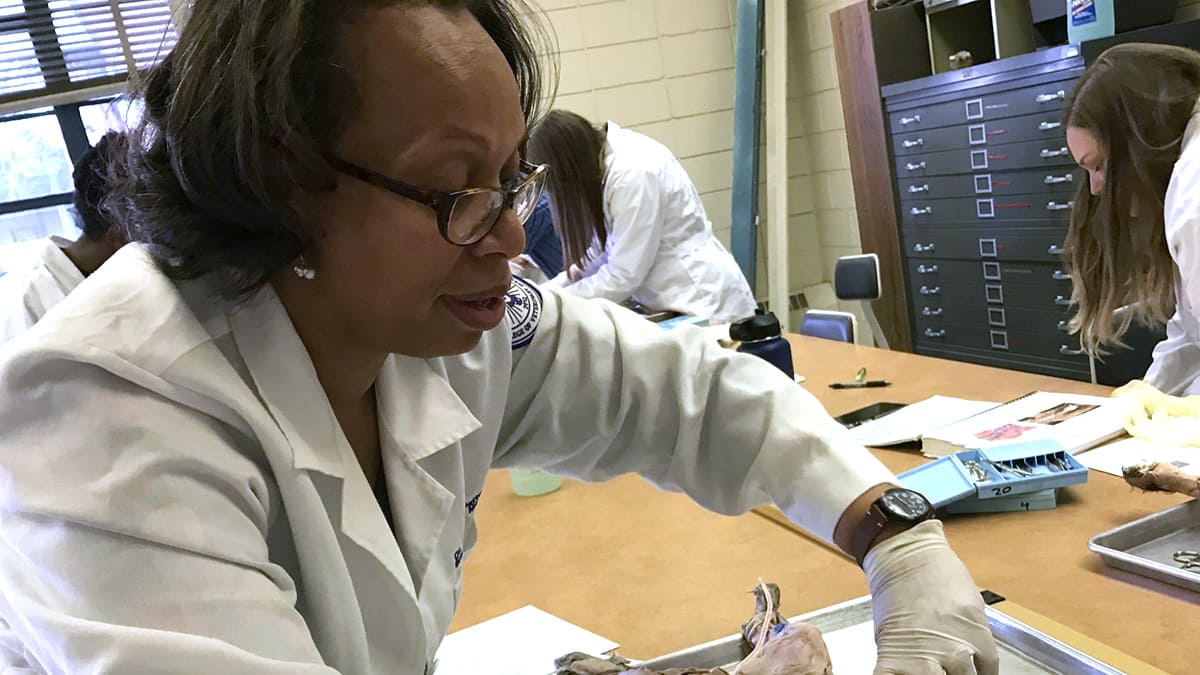 Coretta Patterson advises undergraduate veterinary medicine students to help prepare them for their futures. Photo by College of Agriculture, Biotechnology & Natural Resources.
Coretta Patterson advises undergraduate veterinary medicine students to help prepare them for their futures. Photo by College of Agriculture, Biotechnology & Natural Resources.
Dr. Coretta Patterson has joined the University of Nevada, Reno’s College of Agriculture, Biotechnology & Natural Resources as a lecturer and student advisor.
This is the fourth university that Patterson has worked at, which has added to her experiences in both the veterinary and teaching fields. Currently, Patterson teaches undergraduate students in agriculture and veterinary science majors and advises pre-veterinary science students.
Patterson wants to help pre-vets explore graduate school options
“I wanted to work with undergraduate students because of the ways I could guide them. I can offer them options that they haven’t considered based on my experiences from working at different institutions.” - Patterson
Extension grant helps open food pantries for students
College of Southern Nevada opens Coyote Cupboard on its three campuses to offer free snacks and groceries
Aleks Appleton, Las Vegas Review-Journal
The College of Southern Nevada has opened a food pantry on each of its three campuses to offer free snacks and groceries to students and staff facing food insecurity.
A recent campus survey found that almost half the student population reported being unable to purchase food at times. Another one-third of students said they or other adults in their household skipped or scrimped on meals because there wasn’t enough food to go around.
CSN received a $300,000 grant from University of Nevada, Reno Extension, as well as a grant from Gov. Steve Sisolak’s office to open the Coyote Cupboard at the beginning of the fall term. Located in the school’s new student union building, it’s available to all current students and staff, who can visit twice per week to pick up food or personal care items such astoothbrushes and soap.
The pantry will be operated by the CSN student government and Three Square Food Bank
Coyote Cupboard is available to all current students and staff, who can visit twice per week to pick up food or personal care items like toothbrushes and soap. It also offers grab-and-go items like snack bars and instant noodles for students stuck without a meal option between classes, and visitors can take home bags of groceries filled with pasta and other ingredients meant for dinner.
Sensing change by tracking trees
Associate Professor of Natural Resources & Environmental Science Jonathan Greenberg uses remote sensing to investigate how climate change affects trees in the Sierra Nevada
Tiffany Kozsan
 Jonathan Greenberg and his team collect data, such as this 3D laser scan of trees in the Sierra Nevada Mountains, over several years to estimate fine-scale growth and loss of vegetation. Photo by Jonathan Greenberg.
Jonathan Greenberg and his team collect data, such as this 3D laser scan of trees in the Sierra Nevada Mountains, over several years to estimate fine-scale growth and loss of vegetation. Photo by Jonathan Greenberg.
As average annual temperatures continue to rise, the Sierra Nevada and Great Basin are changing. Unfortunately, the amount of data currently available is limited, and much of it is errant or insufficient. For a broader and more accurate understanding of changes, College researchers have turned to remote sensing to collect data, scanning the area using satellites, planes, unmanned aerial vehicles (drones), ground sensors and cameras.
Associate Professor of Natural Resources & Environmental Science Jonathan Greenberg is using remote sensing to study how climate change affects plant growth and mortality in the Sierra Nevada. With funding from NASA and the U.S. Forest Service, he and his team use a combination of ground-based and aerial cameras, as well as 3D laser scanners, called “LiDAR,” to collect data about Plumas National Forest and the Lake Tahoe Basin. They will use the data to determine how plants responded to the 2016-2017 heavy snowfall, map the forest structure at the individual plant levels, map the locations of wildfire-prone vegetation, and fine-tune the data derived from aerial sensors.
The team scanned in 2017 and 2018, and will scan again in 2019. During 2018, they had the opportunity to collect data before and after the Ferguson Fire in Yosemite Valley, which helped them understand the fire’s severity and identify fire-prone and fire-resistant vegetation.
In August 2018, Greenberg and his team finished a project using remote sensing to find sources of error in estimating the amount of carbon being stored in California’s forests. Trees help remove carbon, a major byproduct of burning fossil fuels and deforestation, from the air. By measuring changes in the amount of carbon in forests, researchers can better comprehend changes in climate resulting from human actions, which helps inform decisions and policies. However, current estimation methods result in extreme error margins.
Greenberg’s team used remote sensing to map 750 million trees, calculated each tree’s biomass, and compared their results to current estimations. The team’s methods resulted in a smaller margin of error, and they hope others will use their methods to understand and reduce future errors when making estimations.
750 million trees
were mapped by Greenberg's team using remote sensing.
Dreyfus recognized for time and energy dedicated to 4-H youth
Clark County-Logandale volunteer named 4-H Volunteer of the Year
Carrie Stark
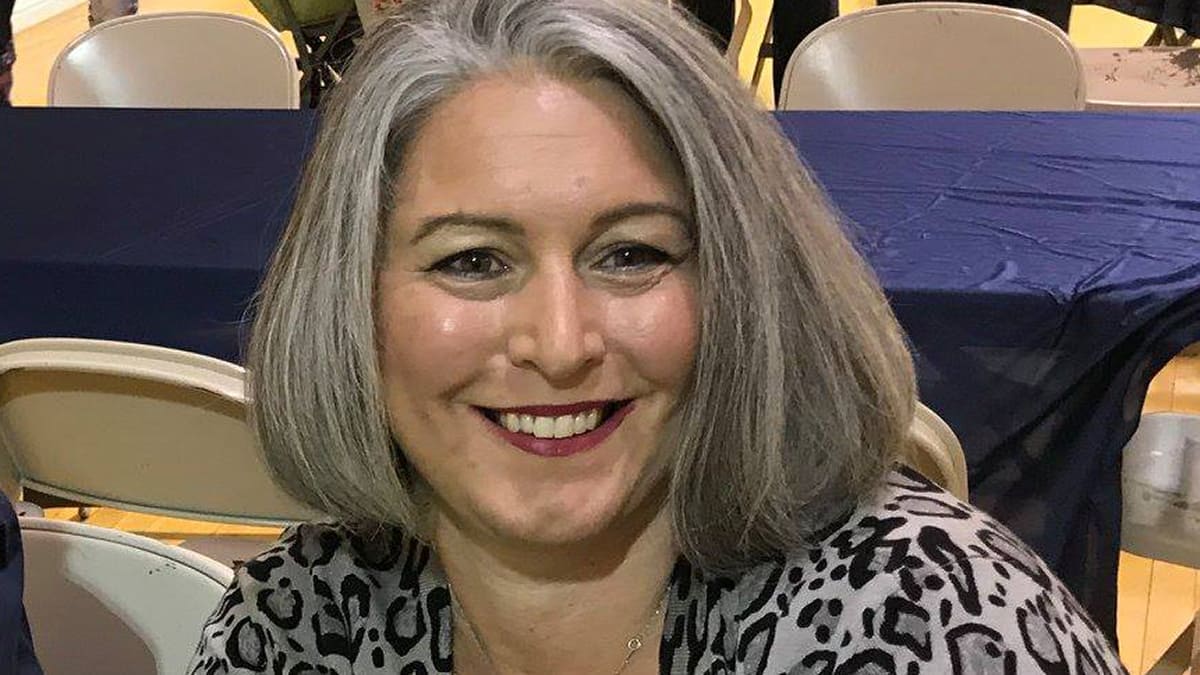 Susan Drayfus was named 4-H Volunteer of the Year. Photo by Nevada 4-H Youth Development Program.
Susan Drayfus was named 4-H Volunteer of the Year. Photo by Nevada 4-H Youth Development Program.
In recognition of the role of agriculture in our global economy, the Nevada Agriculture Foundation and the Nevada 4-H Youth Development Program sponsored the “4-H Volunteer of the Year” award in 2019. This was an opportunity to recognize those volunteers who have dedicated much time and energy to enhance the lives of Nevada 4-H youth.
This year, the award went to Susan Dreyfus, from the Clark County-Logandale Office. Susan has been a rabbit and horse leader in Northeast Clark County for over five years.
Susan’s nominator said, “I know that the future of 4-H in our state will benefit because of leaders such as Sue. Sue is an example of selfless leadership and positive youth development. She is kind, yet stern on youth development and on helping our community.”
Susan is always encouraging other leaders and youth throughout the county, even if they are not in her club. In addition to leading the rabbit and horse project, this fall, Susan will be starting a Junior Master Gardner club in the area.
The other finalists were Joni Test, from Washoe County, and Jamie Domina, from the Nye County-Pahrump Office.
Joni has been a volunteer of the Leg of Lamb 4-H Club for over 20 years and is an integral part of the success of the Washoe County 4-H Program.
As her nominator stated in her application, “Joni is invested in our youth and 4-H on every level… Joni is a face in the community that advertises our clubs and 4-H to schools and possible new members at every opportunity.”
Joni was also described as an incredibly special woman who goes above and beyond for every child, family member and contributor to every market animal club in Washoe County. She has the unique ability to make every 4-H event educational, engaging and most importantly-FUN for all of these children.
Jamie has only been a leader in Nye County for three years, but in that time, she has taken on a lot of leadership opportunities. In addition to leading the garden club, archery and Cloverbuds, she assists with the canine club, horse club and livestock club, and is an officer on the Leader’s Council.
Jamie’s nominators stated, “There are lots of great leaders, but Jamie stands out. She is the first to offer help, and she does it with enthusiasm. She has reasonable expectations of the youth, and explains things in an engaging and understandable way for all levels.”
Susan was recognized at the 2019 4-H Expo Awards Brunch in Winnemucca earlier this month, and will also be recognized and presented with her award at the Northeast Clark County 4-H Achievement Night in November, where she will receive a plaque and $1,000 that was sponsored by the Nevada Ag Foundation to use for educational activities within her 4-H club and/or the county program.
Congratulations to Susan and the other two finalists, as each of these individuals are exceptional 4-H Volunteers and came with strong recommendations from fellow volunteers, staff and youth. They all deserve accolades and appreciation for the amazing work they do to promote the Nevada 4-H Youth Development Program.
Dreyfus has volunteered for 4-H in Clark County-Logandale for over five years
“I know that the future of 4-H in our state will benefit because of leaders such as Sue." - Dreyfus' nominator
Growing a stronger Nevada
Our programs work together to make an impact
Our teaching, research and engagement programs are intertwined and complement one another. Faculty who teach on campus also conduct research as part of the Experiment Station, allowing students to learn about and participate in research. Extension faculty engaging with communities identify research needs, as well as join Experiment Station faculty to conduct research. Faculty on campus help to develop Extension programs in communities.
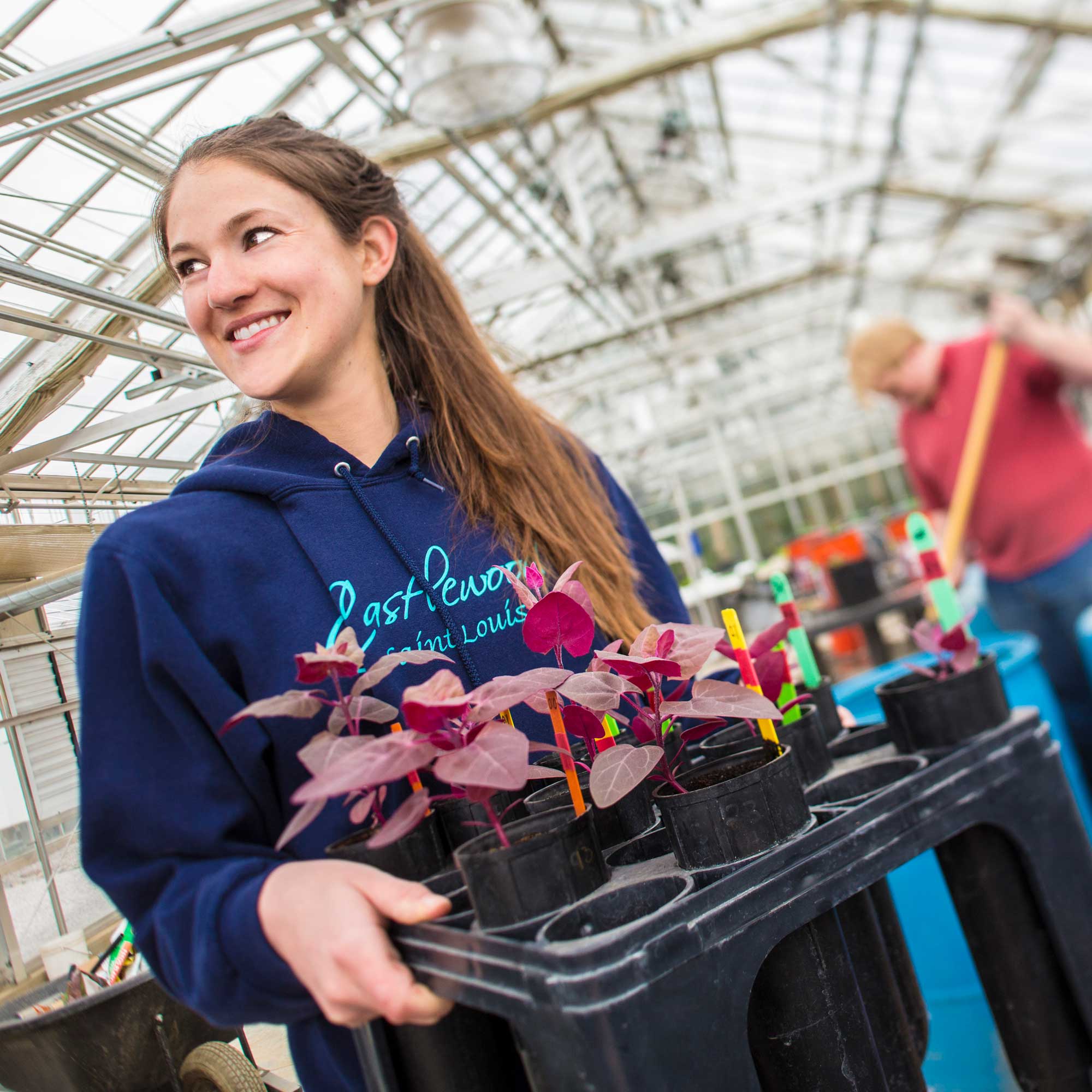
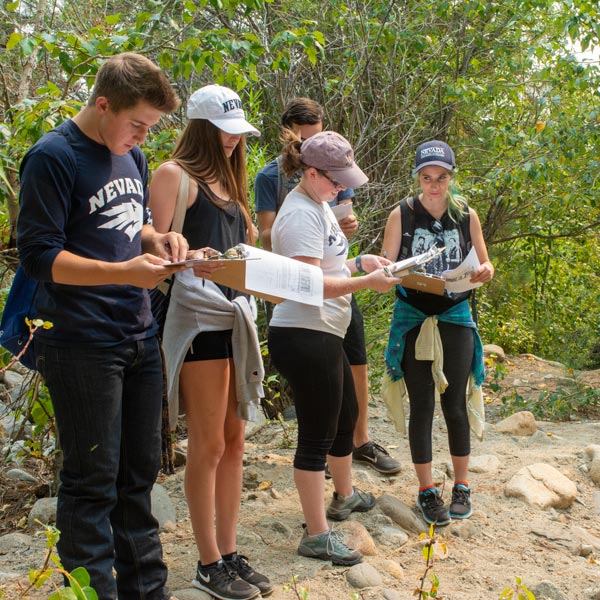
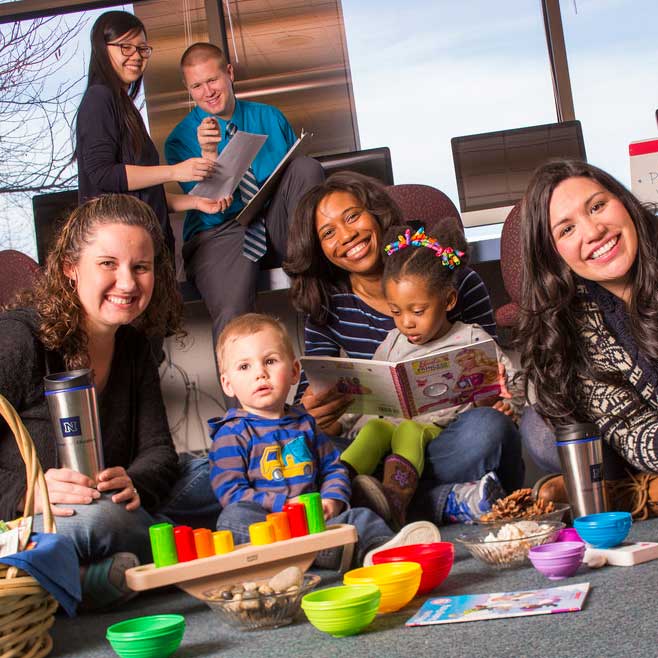
Want to help grow Nevada?
Consider making a contribution in support of classroom, lab or office space; graduate assistantships; student scholarships; or upgrades to the Nevada 4-H Camp. To learn more, please contact Mitch Klaich '02, director of development, at 775-682-6490.
